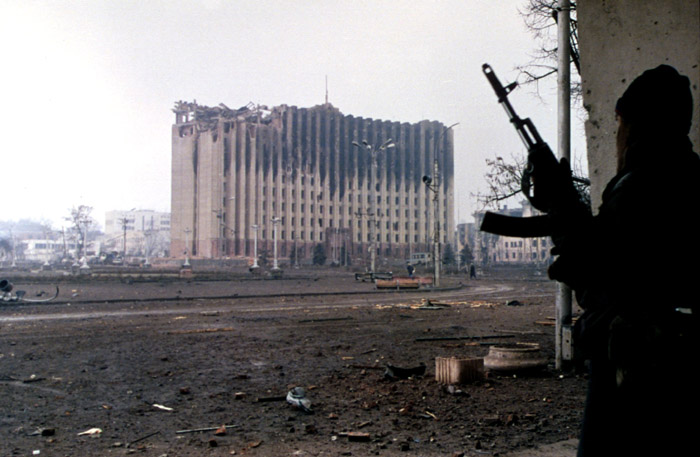Ending the Middle East’s Civil Wars
If the United States and the international community do not act decisively to address the larger problems of the Middle East—particularly the destabilizing effects of multiple civil wars—then these civil wars will only metastasize, spreading instability and chaos and undercutting whatever more modest strategy we try to pursue.
Published by The Lawfare Institute
in Cooperation With

Editor's Note: This post originally appeared on Markaz.
The Middle East just gets worse and worse. It is beset by a plethora of immediate crises, themselves fed by deep structural flaws in the state system of the Muslim Middle East. For the United States, securing its interests in the midst of the region’s interlocking and overflowing conflicts has never been more challenging. The age-old debate over whether to focus finite American resources on the immediate symptoms or the underlying causes has never been so acute.
All that said, it has become self-evident that the first and most important set of problems facing the Middle East are the civil wars raging in Iraq, Syria, Libya, and Yemen. It is the civil wars that are generating the flood tides of refugees washing across the region. It is the civil wars that are spawning the hordes of terrorists, attracting foreign terrorist recruits to the region, and creating the vital “fields of Jihad” where groups like al-Qaida, the Islamic State, and their offspring are able to survive and thrive. It is the civil wars that have radicalized the populations of the Middle East, fomenting a Sunni-Shiite conflict where none really existed. It is the spillover from the civil wars that have already pushed Iraq back into civil war, and now threatens to do the same to the fragile states of Lebanon, Jordan, Tunisia, Egypt, Algeria, and possibly even Turkey and Saudi Arabia. Moreover, it is the civil wars that have so frightened the people of the region that the regimes have been able to justify renewed repression rather than reform as the only way to deal with the underlying political, economic, and social problems that are the true villains of the story of the modern Middle East.
Focusing on any of these second order problems—refugees, the rise of the Islamic State, the brewing Sunni-Shiite conflict—without addressing the civil wars themselves is senseless and self-defeating. No matter how much the international community might do to alleviate the misery of the refugees swamping the region, until the civil wars are brought to an end, it will be unsustainable; there will simply be more and more refugees. Likewise, even a massive international effort that somehow succeeded in destroying the Islamic State would prove ephemeral if it somehow did so without addressing the larger problem of the ongoing civil wars. Even if we could somehow vaporize the Islamic State, if the civil wars continue to rage, new extremist organizations will simply emerge to replace it. This is exactly what happened with al-Qaida in Iraq. The Islamic State’s predecessor was virtually extirpated in Iraq by 2011 until the civil war in neighboring Syria provided it with a new refuge and lifeline. Resolve the civil war, however, and the source of the Islamic State’s strength and appeal disappears.
As I argue in a new piece I co-wrote for the Washington Quarterly with my colleague Barbara Walter, a renowned expert on civil wars, if the United States and the international community do not act decisively to address the larger problems of the region—particularly the destabilizing effects of multiple civil wars—then these civil wars will only metastasize, spreading instability and chaos and undercutting whatever more modest strategy we try to pursue.
Moreover, we note that there is room for some (cautious) optimism. Despite the common wisdom that it is impossible for outside powers to end someone else’s civil wars, the extensive scholarly literature on the subject demonstrates the opposite, although doing so successfully is always difficult and often requires a considerable commitment of resources. More than the United States and its allies have so been willing to commit to the current crop of Middle Eastern civil wars, but nothing like the blood and treasure that the United States sunk into Iraq or Afghanistan over the years—a level of commitment that appears bearable, at least to address the most dangerous of these conflicts and help prevent new ones from breaking out.
You can read our full essay here.




.jpg?sfvrsn=d5e57b75_5)
